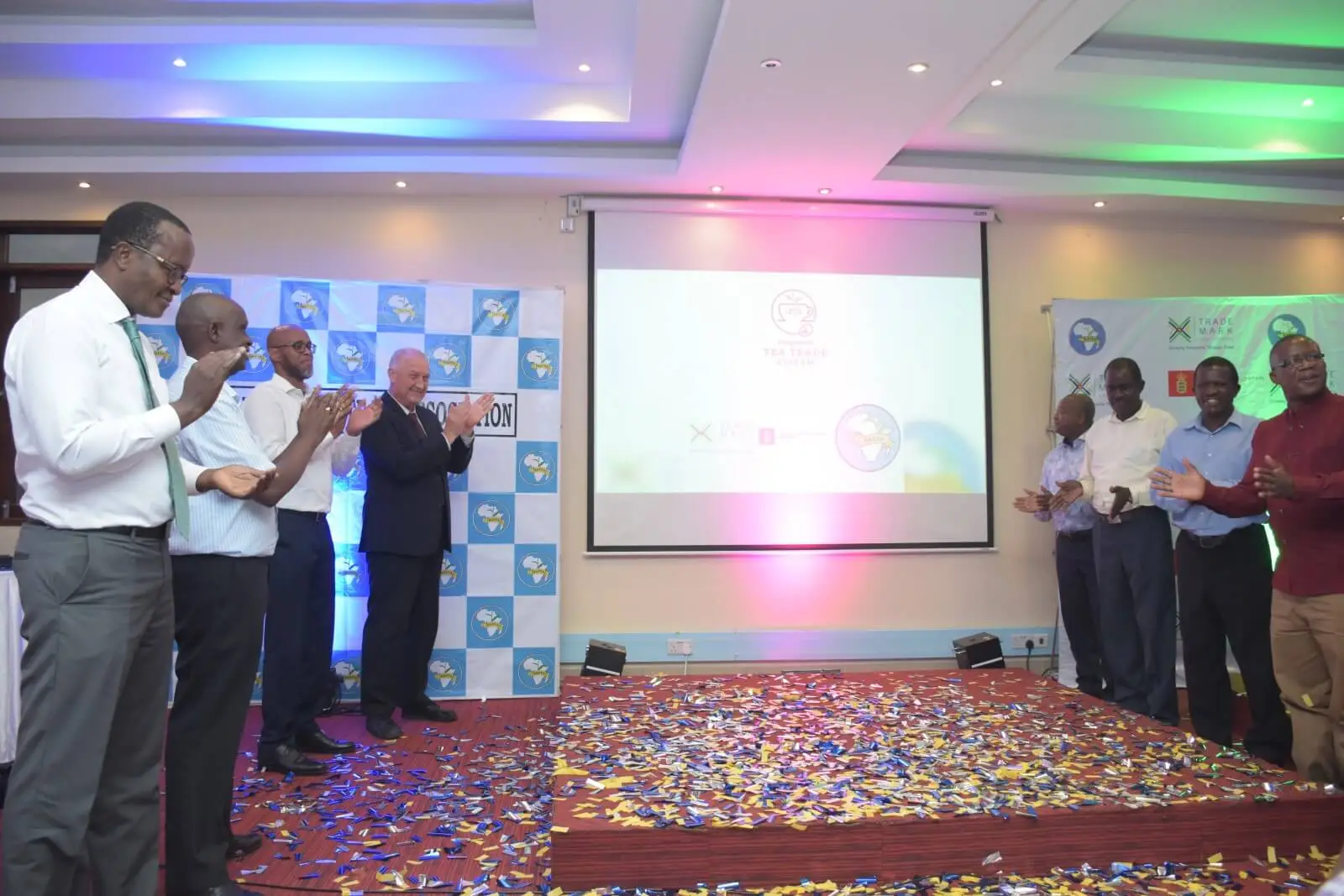Mombasa, 31st March, 2022: East African Tea Trade Association (EATTA) announced the automation of the Mombasa Tea Auction by unveiling the Integrated Tea Trading System (iTTS). The Danish International Development Agency (DANIDA) -through TradeMark Africa- funded the USD 2Million digital platform. The importance of automation has been amplified by current efforts to mitigate the negative economic impacts of the COVID-19 pandemic in the region and facilitate safe trade.
The Mombasa Tea Auction is the world’s largest black CTC tea auction for export. Each week, teas worth over US$20 million are traded from Kenya, Uganda, Tanzania, Rwanda, Burundi, Democratic Republic of Congo, Malawi, Madagascar, Mozambique and Ethiopia. Tea is one of the top export foreign exchange earners for Kenya, generating US$1.14 billion in 2021, and with more than 55 per cent of teas sold at the auction originating from small holder farmers, the auction is an important lynchpin in the industry, as well as the economy more broadly.
The Integrated Tea Trading System (iTTS) project has automated the manual processes along the tea value chain. This covers the dispatch of made tea from the factory, receiving of the tea by the Warehouse, cataloguing and offering the tea for sale by the Broker, buying of the tea and paying for it by the buyer and the finally collecting the bought tea from the warehouse.
The introduction of the automated trading platform sought to remedy the limitations in the old manual set-up, such as the lack of in-depth consolidated auction statistics, and limitation on the scale up of the participants in the auction. Most importantly the automation of the auction platform shall enable future integration with other systems to enhance efficiency and streamline the process of selling and buying of tea.
Speaking on the launch Morgens Strunge Lursen, Counsellor at the Danish Embassy in Kenya stated, “The digitisation of the Mombasa Tea Auction is just one of several projects supported by DANIDA in the region that are geared towards making it easier to trade across borders. The launch of the iTTS is particularly exciting because it helps position such a critical sector for future growth and success by driving efficiency and supporting both increased traceability and information exchange.”
Having expedited the automation process in early May 2020 at the onset of COVID-19, the project helped the industry meet social distancing requirements in line with the COVID-19 pandemic health protocols and facilitate safe trade in the East Africa region. The buyers were able to bid for the teas from the comfort of their office or residence.
In time, iTTS is expected to shorten the pre-auction, auction and post-auction stages; create the potential for increased frequency in trading volumes; reduce the tea trading cycle by about 65 per cent from the current 45 to 60 days to less than a month; and, fast track payments to farmers and reduce the need to take loans to finance farming operation.
As EATTA Managing Director Edward Mudibo stated, “The platform will ensure that stakeholders of the tea auction, including farmers, buyers and sellers receive real-time information on what is happening on the auction bourse, which will boost confidence in the process.”
Highlighting the importance of iTTS, TMA Kenya Country Director Ahmed Farah stated, “Today’s launch of the iTTS is extremely timely. In supports our approach to building digital trade corridors, implementation of green corridor approach that reduces use of paper. Ultimately, it’s a testimony to TMA partnership approach which has seen us fast-track interventions that promote safe trade to protect livelihoods and avoid job losses in East Africa especially in the context of health pandemics. Interventions that promote the digitalisation of trade, such as the Mombasa Tea Auction project, will not only deliver benefits in terms of improving the efficiency of the industry, but will also contribute to increasing transparency of trade.”


